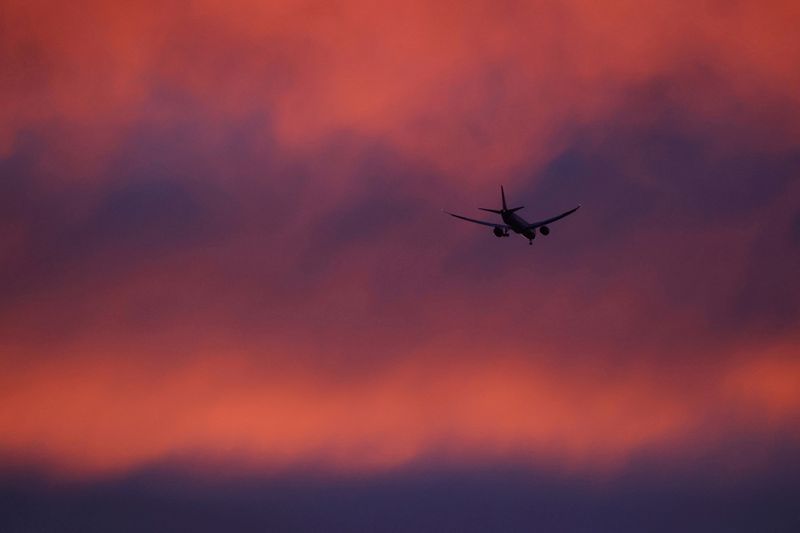By Kate Abnett
BRUSSELS (Reuters) - A United Nations scheme for the global airline industry to offset emissions with carbon credits may undercut Europe's climate goals, a newly-surfaced study says.
Launched this year with a two-year voluntary phase, the U.N. aviation body's CORSIA scheme is the sector's flagship plan to tackle carbon dioxide emissions contributing to higher temperatures and potential environmental catastrophe.
It requires airlines to offset future emissions growth by buying credits from projects such as renewable energy or CO2-absorbing forests.
But a study conducted for the 27-nation European Union's executive warned that the scheme was unlikely to produce real reductions in emissions from air travel because it prices carbon too low to incentivise emissions cuts.
"CORSIA is unlikely to materially alter the direct climate impact associated with air travel," said the study for the European Commission.
The 352-page paper, dated September 2020, was obtained through a freedom of information request by the campaign group Transport & Environment, which published it on Thursday.
Europe wants to be a world leader on climate change.
The EU aims to eliminate its net emissions by 2050, and is negotiating a target to make deeper cuts this decade than the previously planned 40% reduction from 1990 levels.
'TAKE BACK RESPONSIBILITY'
The study was done to inform the EU's upcoming revamp of how its carbon market regulates aviation.
It said that relying on the U.N scheme rather than the EU carbon market to curb international flight emissions would risk undercutting Europe's climate policies and goals.
"The study is a warning to the EU to take back responsibility for addressing pollution on European flights," said Jo Dardenne, Transport & Environment's aviation manager.
A Commission representative said it was preparing rules to implement CORSIA in line with the EU's 2030 climate goals.
The U.N. aviation agency said it did not comment on regional developments. The agency's policies apply globally and are informed by wide consensus negotiated by all countries, a spokesman said.
The International Air Transport Association, which represents about 300 airlines globally, has said airlines are considering a more ambitious climate goal than their existing commitment to halve net CO2 emissions by 2050.
Aviation accounted for 2-3% of global CO2 emissions in 2018.
The EU carbon market currently requires airlines to buy CO2 permits for flights within Europe, but Brussels is considering extending that to international flights.
That could hike costs for airlines. The price of EU carbon permits has soared this year to record highs of above 40 euros ($48) per tonne, compared with $2 per tonne for CORSIA-eligible offset credits.
Brussels is also drafting quotas to force airlines to use low-carbon fuels, before technologies such as hydrogen-powered aircraft become available in the coming decades.

($1 = 0.8395 euros)